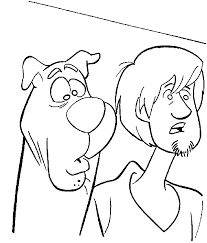 Kristine Kathryn Rusch's The Disappeared: A Retrieval Artist Novel is one of those science fiction books that I don't regret having read, but I probably wouldn't recommend it to others. Its heart is right: it sets up an interesting (and troubling) premise and drops the premise into a futuristic detective story. Unfortunately, the execution is a bit weak; Rusch just isn't that great a writer -- at least, she wasn't in 2002, when this novel was published. But The Disappeared is the first novel of a series, and I liked it enough to give the series a second try. Maybe she's improved.
Kristine Kathryn Rusch's The Disappeared: A Retrieval Artist Novel is one of those science fiction books that I don't regret having read, but I probably wouldn't recommend it to others. Its heart is right: it sets up an interesting (and troubling) premise and drops the premise into a futuristic detective story. Unfortunately, the execution is a bit weak; Rusch just isn't that great a writer -- at least, she wasn't in 2002, when this novel was published. But The Disappeared is the first novel of a series, and I liked it enough to give the series a second try. Maybe she's improved.It's probably not fair, either, that I listened to this book while still in the middle of Pynchon's latest. Anything read under such circumstance is bound to suffer.
The premise of Rusch's novel, as I said, is strong: multicultural tribunals and treaties among humans and at least 3 alien races have set up a situation where humans may be subject to (from the human perspective) extremely harsh penalties for (again, from the human perspective) minor or unintentional crimes. At its best, science fiction dramatizes ambiguous ethical situations just like this one. A great dramatization avoids preaching and keeps all sides of the ethical ambiguity fully in place -- a sci-fi version, I suppose, of Keats's negative capability. And for the most part, and through most of The Disappeared, Rusch succeeds.
In the end, though, the author seems to come down sqaurely on the side of the humans. Of course, it's hard to disagree, if only because we as readers are, on the whole, ourselves human.
But the ultimate erasure of ethical ambiguity isn't simply a matter of author/reader ethnocentrism. The real problem lies with a competing insistence on keeping the aliens alien. The reader gets the story of what "crimes" these humans-on-the-lam have committed, but it's all filtered through other humans. This isn't right, the main characters -- humans on the run from this harsh justice, or the two detectives suddenly faced with a rash of what might be called extradition orders -- continually conclude, and the only exposure we get to the aliens' perspective comes through translators who interpret not only the words but the motives of the aliens.
The insistence on the aliens' status as alien is admirable. I hate works that come to the conclusion that deep down we're all the same. But a side effect of this insistence is an inability to get beyond the ethocentrism that, at least in the case of this novel, is at the heart of the book's ethical exploration. In the end, as sci-fi is often accused of being, The Disappeared is a profoundly conservative book.




